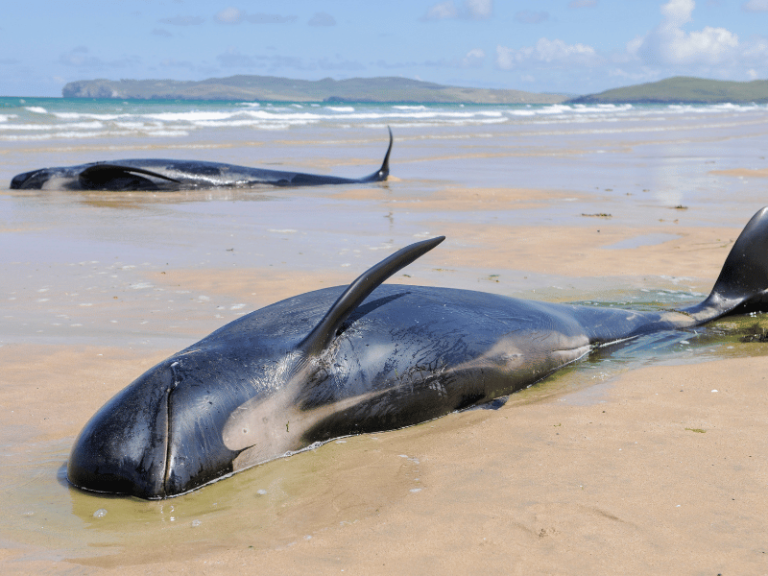Among the marine mammals that live in the ocean, aside from whales, there are many other types of sea creatures. These animals, such as sea otters and seals, also live in the water but gather on land during their breeding seasons. Only whales, regardless of the time, never leave the water. Whales, which breathe air with their lungs, would not survive on land because air cannot support their massive bodies.
The ribs and sternum of whales are extremely fragile. Their chest cavity walls are soft, and their abdominal cavity lacks skeletal support. While living in water, the buoyancy of the water makes them feel comfortable and unrestricted. However, once stranded on land, their heavy bodies and fragile skeletal structure cannot withstand the pressure. This results in severe compression of their chest and abdominal cavities, affecting their lungs, heart, and other internal organs, leading to significant difficulties and obstacles in breathing and blood circulation. Therefore, when whales are stranded on shore, they quickly suffocate and die within a short period of time.

